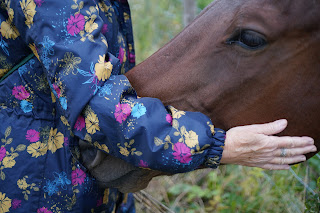Hymn “Santo, Santo”
The Lords Prayer in our own language
Reflection on John 12v1-8
Each of the gospels has an anointing story. This is John's account.
He is anointed as one would anoint a body. John presents Jesus as one who is about to die for the sins of all, an act of devotion with clear regal and messianic meaning, a symbolic anticipation of Jesus' burial and his departure, but there are also links with the washing of the disciples' feet by Jesus and the treachery of Judas.
Six days before Passover Jesus was at Lazarus house, as he was in Bethany where he had raised Lazarus to life. A dinner is given in his honour with people reclining at the table on cushions around a low table. The two sisters are entertaining on a Sunday evening, the day the early church and we break bread and wine in remembrance of Jesus.
Mariam or Mary of Bethany is mentioned in all the gospels. In Luke she is described as the one who sat and listened to Jesus while Martha busied herself in the kitchen (Lk.10:38-42). Mary, we are told, had many followers among the Jews who came to believe in Jesus through her. In the previous chapter in Johns gospel, Mary plays a subordinate role to Martha in the story of the raising of her brother, Lazarus. It is Martha who recognizes that Jesus is the Messiah. It is no wonder that Mary wants to worship Jesus. In this story in John chapter 12 she plays the main part. We know from the other gospels that a woman anointed Jesus and it is inferred that she is a sinner (Luke10v38-42). In other words, she was a prostitute.
Mary poured a Roman pound (325 grams, roughly one pint or half a litre) of perfume on Jesus. It was myrrh, extracted from the Balsam plant, also a common term for aromatic oil in general. Nard is the aromatic oil from spikenard. Spikenard by itself is too strong to be applied to the skin so it would be diluted with a rubbing oil, like pistachio nut oil. For anointing the dead, it would be highly concentrated, and therefore, very expensive, in which case the word pure may mean strong or concentrated. It was expensive more expensive then some of the perfumes today. The house was filled with the fragrance from the perfume.
Judas Iscariot who was later the one who betrayed him, (betray meaning- to deliver over) asked “Why was this aromatic oil not sold for three hundred denarii and given to poor?” One denarii was a day's wage at that time. Judas had his failings recorded for eternity in the gospels. The writer of the gospel John, adds that he said this not because the poor meant anything to him, but because he was a thief, as he was in charge of the money, and he stole from what was put in it.
“Leave her alone” said Jesus. As a follower of Jesus, she has kept this oil for his death a
nd embalming, and out of devotion, sensing that his death is imminent, she symbolically performs the embalming at this moment.
“For the poor are always with you but you will not always have me”, a statement that reflects the Old Testament rabbinic theology that a work of mercy like preparing someone for burial exceeded a work of justice like almsgiving.
The detail that she wiped away the anointment with her hair is omitted by the other gospels, maybe because such an action was too intimate and uncomfortable for people to deal with. Mary’s actions point forward to the Last Supper where Jesus washes the feet of the disciples. Martha, recognizing Jesus as the Jewish Messiah. Mary anoints Jesus to point to the death and resurrection of Jesus. This is the testimony of these women.
Mary also witness the crucifixion. Jesus calls women to be his disciples (Mark 3v31-35) and his reputation suffers because he mixes with them. Who are my mother and father, my brothers and my sisters? We are all potentially Jesus family! (Quite a thought!) This is the new community that Jesus has called, made up of outsiders, common and unreligious people (Mark 10v29-30).
So how should women be treated? Like Jesus treated Mary.
And what was Mary thinking and feeling at this time? I think she acted out of pure devotion and gratitude to Jesus for healing her brother. She loved him and worshipped him. She knew who he was and what would happen. And she is a legacy for us because of what she has done. Her story is preached everywhere as part of the gospel “in memory of her” as Mark said it would be (Mark14v9).
Prayers of intercession for our world, for our countries, for our communities, our families and friends and ourselves.
Song “Im no longer a slave”

